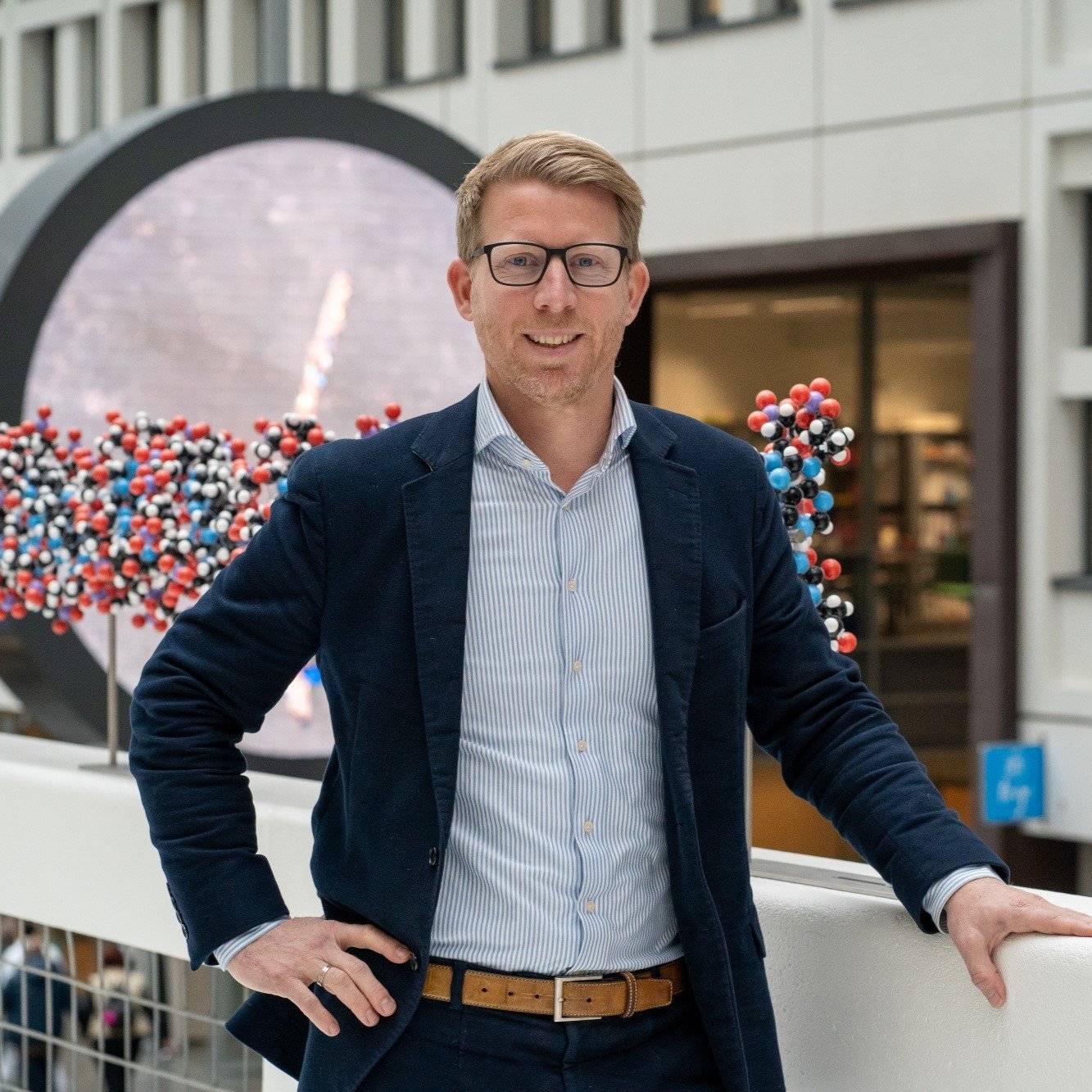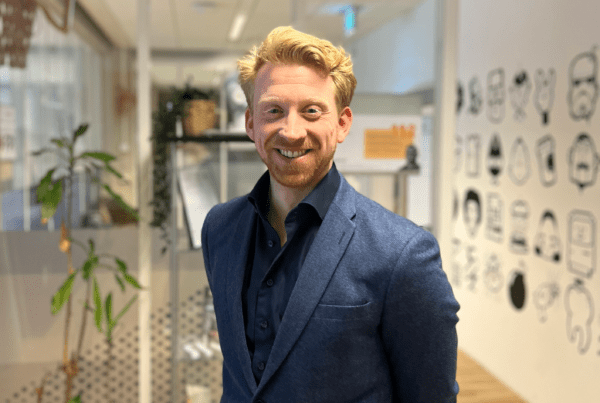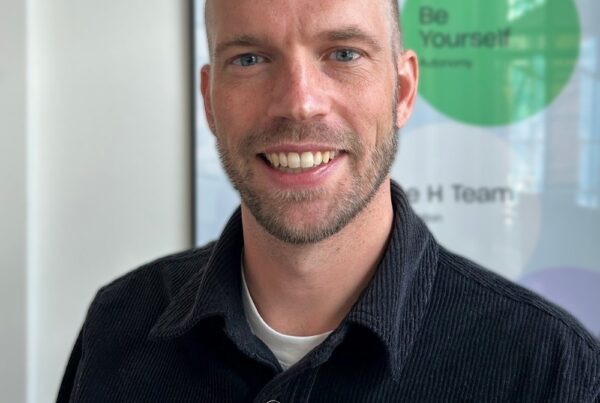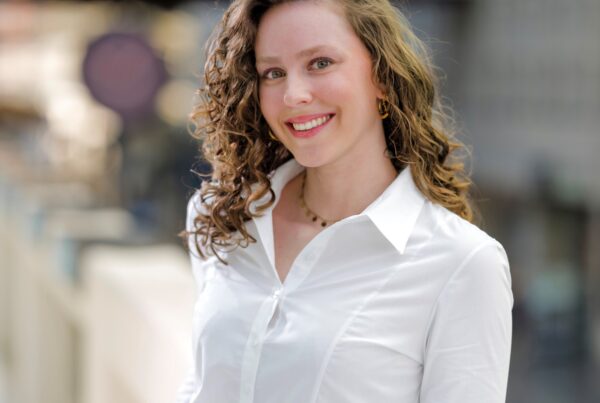Meet the Network: Rik Dalmeijer, Director of Erasmus MC Campus Development
The Life Sciences & Health ecosystem within the Rotterdam region is a dynamic network of companies, service providers, educational institutes, healthcare providers, and more, working together to innovate in healthcare. As Rotterdam Square, we would like you to get to know this network. This time we introduce to you Rik Dalmeijer, Director of Erasmus MC Campus Development.
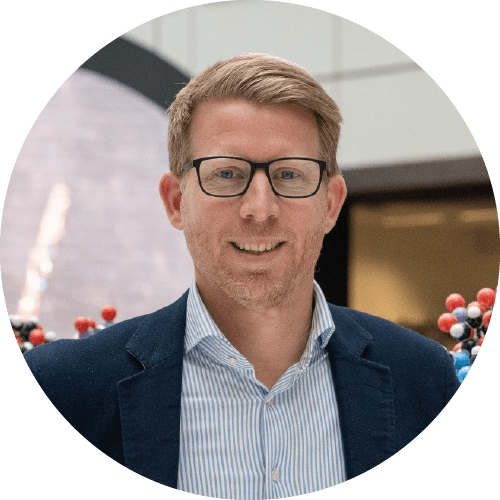 Could you please introduce yourself first?
Could you please introduce yourself first?
My name is Rik Dalmeijer. I am director of Erasmus MC Campus Development, a position within the real estate directorate of Erasmus MC. Previously, I worked as an area developer at the Port of Rotterdam Authority and then at the municipality of Zoetermeer and worked on various projects that have given me many insights into the complexity and dynamics of urban development. When the opportunity arose to work on the development of the Erasmus MC Campus, I knew that this was a unique opportunity to apply my knowledge and experience in an innovative and socially relevant context.
What particularly attracted me was the combination of working at the intersection of real estate development, sustainability and innovation, with a direct impact on medical science and the healthcare sector. Erasmus MC stands for high-quality care, leading scientific research and education, and it is an honor to contribute by helping to shape a campus that supports the medical challenges of the future.
What is your role within Erasmus MC and the development of the Erasmus MC Campus?
Last year, my main responsibility at Erasmus MC was to lead the revision and implementation of the so called Masterplan 2050. This Masterplan is the strategic blueprint for the future development of the campus. It builds on previous insights and visions and integrates them with the latest real estate strategy that was adopted administratively in 2024.
The revision of the Masterplan 2050 covers a wide range of topics, such as the economic future perspective, sustainability and mobility. Click here for the website Masterplan 2050.
During the revision of the Masterplan, extra focus was placed on optimizing the balance between the internal needs of Erasmus MC and the possibilities for collaboration with external parties. Rotterdam Square plays an important role in this by connecting to the broader urban network and by strengthening the economic activities around the campus, so that we not only consider the functional requirements of medical and scientific institutions, but also the integration of public spaces, innovation hubs and partnerships with the city of Rotterdam.
My role requires close collaboration with various stakeholders, including the board of Erasmus MC, the municipality of Rotterdam, architects, urban planners and representatives from medical science. My job is to ensure that the different visions and interests come together in a plan that is realistic, feasible and future-proof. I also supervise the implementation of the strategy and ensure that it fits in with the broader mission and vision of Erasmus MC.
“The Erasmus MC Campus of the future will be a place where healthcare, science and entrepreneurship come together. With Rotterdam Square as a partner, we create an inspiring environment that not only contributes to medical innovations, but also to the vitality and economic growth of Rotterdam as a whole.”
What will the campus look like in the future, and in what ways do you see Erasmus MC and Rotterdam Square collaborating and complementing each other in this project?
The future Erasmus MC Campus will be a leading Health Tech Campus, designed to facilitate an open and innovative ecosystem. This means that the campus is not only a place for care and scientific research, but also becomes a breeding ground for collaboration between medical institutions, knowledge centers, start-ups and established companies.
Regarding the collaboration between Erasmus MC and Rotterdam Square: this collaboration is essential for connecting the campus with the broader urban context. Rotterdam Square can act as a catalyst for strengthening the interaction between the campus and the city. For example, by embedding public facilities, green spaces and cultural activities, the campus becomes not only a workplace but also a lively meeting place for residents, students, researchers and entrepreneurs.
In addition, Rotterdam Square offers a platform for economic interaction, such as facilitating start-ups and attracting international companies, which contribute to the economic future of both the campus and the city.
Date: December 17, 2024
Click here if you would like to connect with Rik on LinkedIn. Do you want to be featured in the next ‘Meet the Network’? Contact us.
